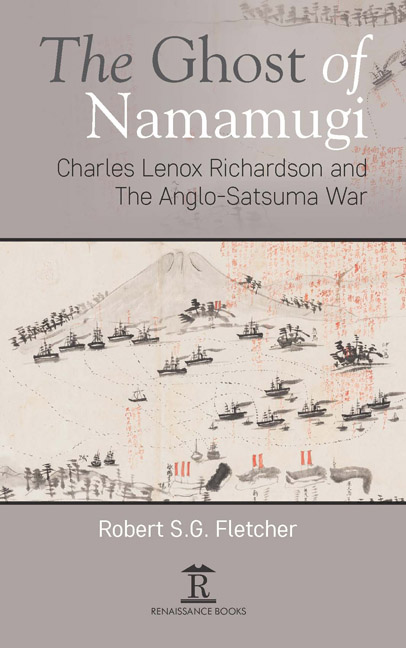3 - Anatomy of an ‘Outrage’, 1862–1864
Published online by Cambridge University Press: 30 April 2022
Summary
FOR BOTH BRITAIN and Japan, the 1860s were turbulent years in international affairs. Researchers working on the politics of the bakumatsu era have been drawn to the diversity, complexity and entanglement of its voices and opinions. Historians of the British Empire, too, are increasingly mindful of ‘the chaotic pluralism of private and sub-imperial interests’ that characterised mid-Victorian expansion. In the same way, understanding the fallout of the Namamugi incident also means getting away from explanations that prioritise interstate relations, or that speak of ‘British’ and ‘Japanese’ policy as if coherent and united positions existed at the time. Instead, the challenge is to explain how particular interests were able to achieve purchase over the course of Britain's response to the Richardson affair, and to pay attention to its information milieu: the forms and means by which information from the periphery was gathered, processed and disseminated at home. To do this, we must recognise up front the motivating power of ideas (including the idea of ‘outrage’ itself), while tracing the actions of the groups that promoted them. The chaotic events of 14–15 September had demonstrated that there was no clear, axiomatic way to respond to Richardson's death. Instead, a reaction favouring armed intervention would have to be built, and a particular image of Richardson propagated for the purpose.
Compared with their counterparts at Shanghai or Canton, the British merchants of Yokohama held less sway in London. But there lay an advantage in their relative isolation, too. For much of the 1860s, British policy towards Japan was relayed through a persistent fog of confusion. Officials admitted struggling to understand Japanese factions, distinguish Japanese personalities and make sense of a tumultuous political environment. They openly despaired of ‘the great difficulty of obtaining any reliable information in this country’. Bakufu politics, glimpsed through fleeting images and inferences, left even seasoned observers feeling adrift: ‘so tangled is Japanese policy’, the American Francis Hall confided in his diary, ‘that no one dare affirm that he understands it’. Even Rutherford Alcock confessed as much:
After a three years residence [in Japan], during which my whole time and thoughts were devoted to the one object of obtaining reliable information on the Government, state of parties and political condition of the people, I feel still embarrassed and perplexed with doubts on some of the most vital points.
- Type
- Chapter
- Information
- The Ghost of NamamugiCharles Lenox Richardson and the Anglo-Satsuma War, pp. 48 - 88Publisher: Amsterdam University PressPrint publication year: 2019



